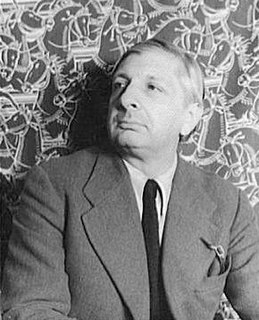A Quote by Debbie Ford
Related Quotes
War is the matter which fills all history; and consequently the only, or almost the only, view in which we can see the external of political society is in a hostile shape: and the only actions to which we have always seen, and still see, all of them intent, are such as tend to the destruction of one another.
Looking out of my window this lovely spring morning I see an azalea in full bloom. No, no! I do not see that; though that is the only way I can describe what I see. That is a proposition, a sentence, a fact; but what I perceive is not proposition, sentence, fact, but only an image which I make intelligible in part by means of a statement of fact. This statement is abstract; but what I see is concrete.
Marseilles isn't a city for tourists. There's nothing to see. Its beauty can't be photographed. It can only be shared. It's a place where you have to take sides, be passionately for or against. Only then can you see what there is to see. And you realize, too late, that you're in the middle of a tragedy. An ancient tragedy in which the hero is death. In Marseilles, even to lose you have to know how to fight.
It is my eyes which see, and the sight of my eyes grants beauty to the earth. It is my ears which hear, and the hearing of my ears gives its song to the world. It is my mind which thinks, and the judgement of my mind is the only searchlight that can find the truth. It is my will which chooses, and the choice of my will is the only edict I must respect.
I think the perception of me can be, you know, confused. But that's only because people only see that side of me when I'm at work, in front of the camera. So they don't see Miranda at home; they don't see behind the scenes. They see the glamour of it all but they don't see Miranda standing barefoot in a dirty old house.
Kant, discussing the various modes of perception by which the human mind apprehends nature, concluded that it is specially prone to see nature through mathematical spectacles. Just as a man wearing blue spectacles would see only a blue world, so Kant thought that, with our mental bias, we tend to see only a mathematical world.



































